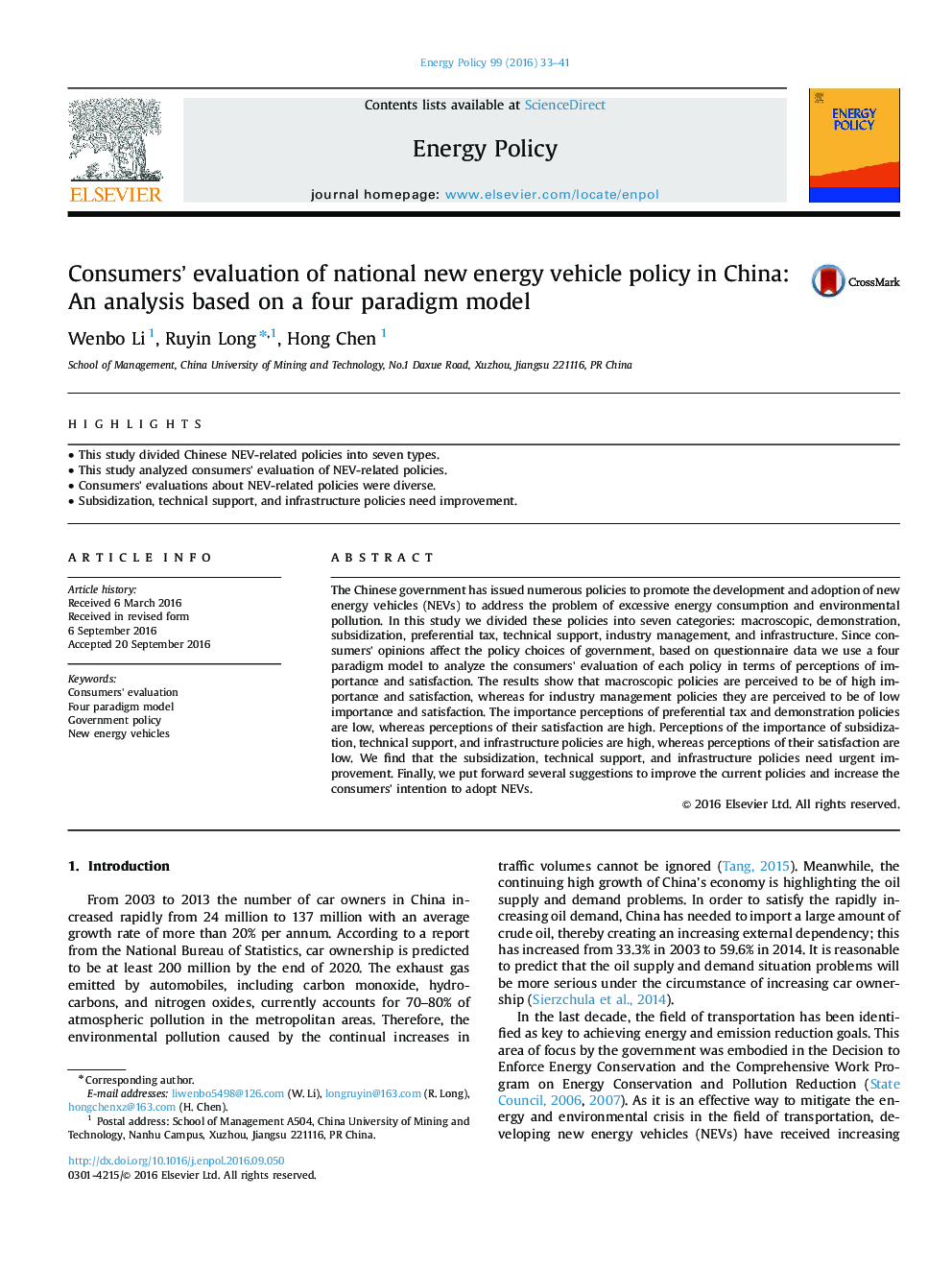| Article ID | Journal | Published Year | Pages | File Type |
|---|---|---|---|---|
| 5106253 | Energy Policy | 2016 | 9 Pages |
Abstract
The Chinese government has issued numerous policies to promote the development and adoption of new energy vehicles (NEVs) to address the problem of excessive energy consumption and environmental pollution. In this study we divided these policies into seven categories: macroscopic, demonstration, subsidization, preferential tax, technical support, industry management, and infrastructure. Since consumers' opinions affect the policy choices of government, based on questionnaire data we use a four paradigm model to analyze the consumers' evaluation of each policy in terms of perceptions of importance and satisfaction. The results show that macroscopic policies are perceived to be of high importance and satisfaction, whereas for industry management policies they are perceived to be of low importance and satisfaction. The importance perceptions of preferential tax and demonstration policies are low, whereas perceptions of their satisfaction are high. Perceptions of the importance of subsidization, technical support, and infrastructure policies are high, whereas perceptions of their satisfaction are low. We find that the subsidization, technical support, and infrastructure policies need urgent improvement. Finally, we put forward several suggestions to improve the current policies and increase the consumers' intention to adopt NEVs.
Keywords
Related Topics
Physical Sciences and Engineering
Energy
Energy Engineering and Power Technology
Authors
Wenbo Li, Ruyin Long, Hong Chen,
